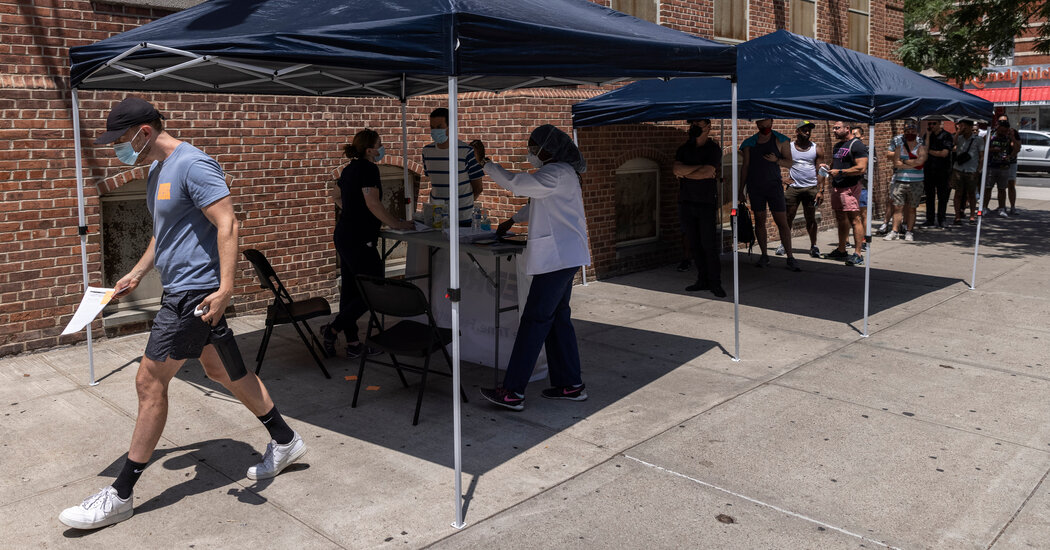
“We have the capacity for testing that we need and have made it easier to access,” Dr. Walenksy said.
But health officials should be doing more active surveillance for the disease, Dr. Gonsalves said, getting out into the community and proactively offering testing in venues that serve men who have sex with men, as well as in congregate settings, such as homeless shelters, in which the virus might spread.
The monkeypox test involves swabbing one of the lesions that typically accompany the disease, making it difficult to expand testing to people who do not have symptoms, Dr. Walensky said. “You do need to have a lesion in order to get a test,” she added.
Jynneos, the only vaccine approved by the F.D.A. specifically for monkeypox, is given in two doses, 28 days apart. It is made by Bavarian Nordic, a small company in Denmark, and its global supply has been exceedingly limited.
The United States has purchased nearly seven million doses in total, but has received just 372,000 of them, Dawn O’Connell, the assistant secretary for preparedness and response at the Department of Health and Human Services, said on Friday. So far, 156,000 doses have been distributed nationally, she said.
State health officials can request an alternative vaccine known as ACAM2000, which was developed to prevent smallpox and should also provide protection against monkeypox, experts say. But that vaccine is associated with serious side effects, and the federal government has only provided it to “a few states in relatively modest quantities,” Ms. O’Connell said.



